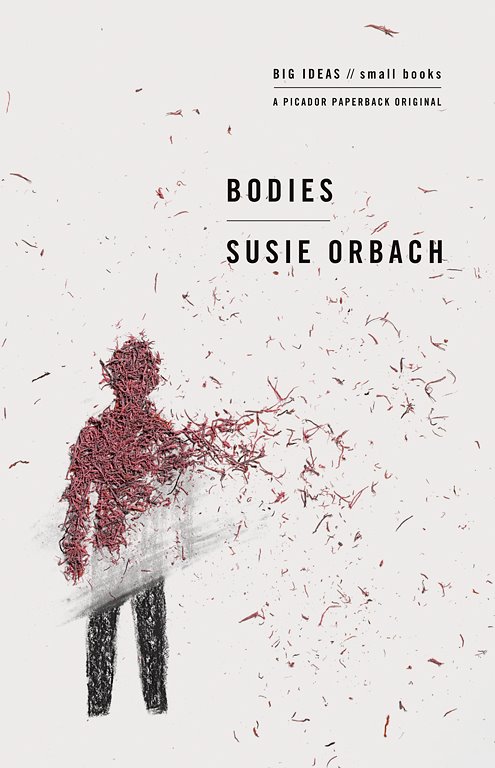
In Bodies, feminist psychoanalyst Susie Orbach explores contemporary body issues within a global culture, arguing that bodies are “not in any sense matter of fact, the simple outcome of DNA,” but rather are the products of social and cultural construction. Orbach writes that her work aims “to bolster our resilience in the face of unprecedented attack and to bring sustainability to our bodies so that we can live with and from them more peaceably.” This goal is, of course, no simple task, as the course of Bodies demonstrates.
As a psychoanalyst, Orbach of course takes many cues from Freud, but in her introduction she clearly states the need to move beyond Freud’s theories (it’s all in your head) to an understanding of “the impact of contemporary social practices” — predominantly, in her book, the influence of a media-saturated, image-fueled Western culture on the rest of the world. At stake, Orbach claims, “is a transgenerational transmission of anxious embodiment.” In layman’s terms: we imprint our own desires and fears and hangups about the body–feelings generated in large part from our culture–onto our children.
To explore these problems, Orbach–like Freud–presents a series of fascinating case studies, including a man who elects to have his legs amputated in order to paradoxically feel “whole,” transgendered persons, and abused and neglected children. Orbach is particularly concerned with the drive toward “choice” — the concept that one might actively “choose” how one’s body is shaped, and, as such, she repeatedly engages the discourses of elective plastic surgery, modern weight-loss dieting, and eating disorders. Orbach confronts the reality that many of our “choices” are actually the products of “the new visual grammar” of mass media, the iteration of Photoshopped and airbrushed bodies that bombard our senses hundreds, thousands of times daily. She extends this problem beyond the West, to show the ways in which mass culture affects the psyche of the rest of the world’s denizens.

For Orbach, a future of genetic alteration toward the perfecting of a culturally-constructed ideal is a horrible nightmare. Instead, she argues, our “sturggle is to recorporalise our bodies so that they become a place we live from rather than an aspiration always needing to be achieved.” In order to achieve this, Orbach avers that we “urgently need to curtail the commercial exploitation of the body and the diminution of body variety, so that we and our children can enjoy our bodies, our appetites, our physicality and our sexuality.” Orbach’s solution returns to her concept of “transgenerational transmission” — namely, parents need to understand their children’s needs for caring adult responses, and the myriad ways in which these responses will inform the child’s attitude about his or her own body.
In the U.S., Bodies has been published as part of Picador’s BIG IDEAS // small books series and it’s a perfect fit for the series: an engaging and relevant philosophical text rooted in a central academic argument, but written in a style that will appeal to a popular audience without dumbing down anything. Like the two books of the series we reviewed last year, Steven Lukes’s Moral Relativism and Slavoj Žižek’s Violence, we might not agree with everything the author has written here, but we cannot deny that this is an enthralling and important discussion. Highly recommended.
Bodies is now available from Picador books.
